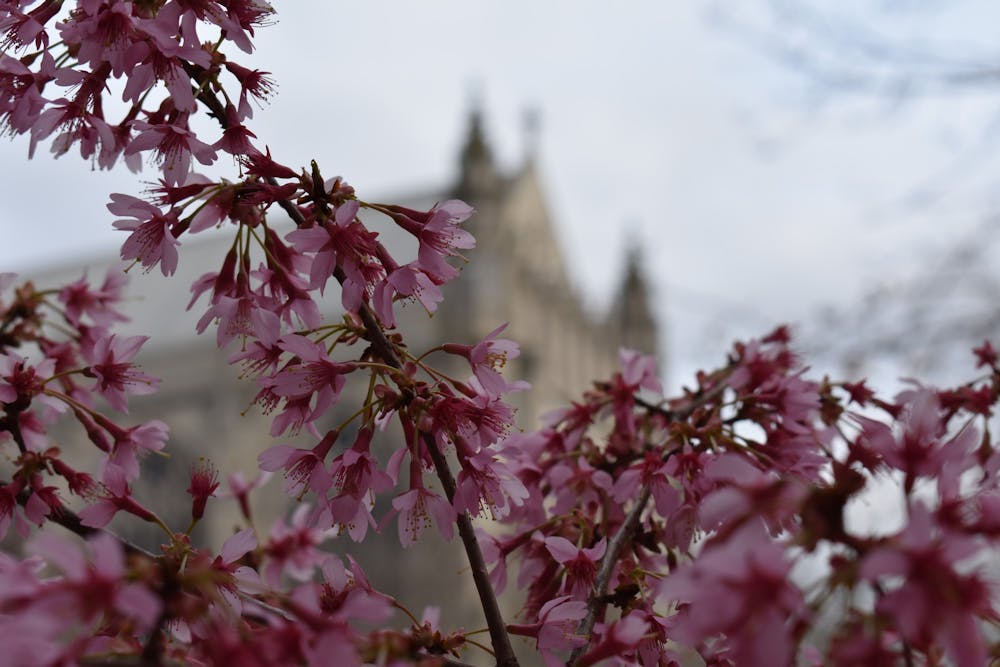In June 1918, the Pulitzer Prize-winning poet Edna St. Vincent Millay wrote “First Fig,” a poem about doing too much.
“My candle burns at both ends;
It will not last the night;
But ah, my foes, and oh, my friends—
It gives a lovely light!”
Recently, a century and three years later, I felt much the same way. My candle burned at both ends — and what a light it gave! I was in five classes; I had major roles in three sections here at The Daily Princetonian; every night I jumped from Zoom call to Zoom call, from one club’s planning meeting to another’s semi-mandatory virtual social event.
At the same time, I had just arrived on campus and was trying to navigate a new social life. I wanted friends — but they take time, especially amid the pandemic. Here in this new valley of ashes, there aren’t incidental interactions: all time with friends is contrived. Friends 101 was my sixth class. It has a lot of homework.
And, I was trying to, you know, be a person. Most nights I would bring pre-packaged dinner back to my dorm to watch a pre-recorded lecture. Or if I ate in a dining hall, I would, without fail, bring a book with me, to read over rice and vegetables. (I’ve gotten quite good at holding a pen and fork in the same hand.)

Sleep became secondary. I worked until I finished everything I had assigned myself for the day, which often took me into the early hours. I kept burning my candle, and it was lasting the night, if only barely.
Until it didn’t. A few weeks ago — around Week 4, I think, but time is a flat circle — I reached a crisis. I couldn’t do it anymore. I worked all day, every day, not finishing half of what I wanted to do. That week, I was supposed to read Paradise Lost — it laid unopened. Each day was a race that I was losing. Something had to change. The word “crisis” comes from the Greek “krisis,” which means judgement, the result of a trial. Indeed my day in court had come. I was doing too much, and I was paying for it.
I sent a Slack message to Emma Treadway, editor-in-chief of the ‘Prince’. I told her I needed help. She helped me to organize a hiatus from my position as an associate editor of the newspaper’s Sports section, and convinced me to drop my fifth class. (Emma’s recent letter from the editor shows her dedication to the mental health of everyone who works at this newspaper — a value she’s held strongly for her whole tenure.)
While having that conversation over text with Emma, it all hit me. I crumbled to the floor, slumped against my bed. I cried and cried. It shouldn’t be like this — I don’t even have it that hard, I thought. Others are doing all I’m doing and more, doing it better, and they seem fine, I thought. I’m supposed to be good at planning, organized, ready for anything, smart. I wept. My candle had gone out, had not lasted the night.

But still, I listened to Emma, and my other friends and mentors. I cut back. I did less. And I’m the better for it. For the last month, I’ve felt more focused, I’ve slept better, and I’ve gotten more done each day. I spend more time on fewer things, rather than less time on more things. I work at a level that is just past comfortable, just enough to grow. Writing this now, I still feel guilty. I think: I have not done enough to deserve to quit. I don’t deserve sympathy. But this, like all things, is relative: “too much” is different for everyone.
There’s a model of success that pervades the cultural consciousness. Great grades, great college, great grades in great college, great job, great life. How great is that? I’m not sure. The way I see it, if success in school requires crying on the floor, I don’t want to be successful. Success, I think, is being happy, at any given time. I still think it’s good to work, it’s good to struggle, it’s good to fail. But above all, we should try to be happy.
Being happy, I think, is the first and only goal we have. I often play the “Why?” game: Why am I doing this assignment? To pass a class. Why am I trying to pass this class? To graduate. Why that? Then why that? If you follow the why-chain down to the bottom, happiness is always the original cause. Happiness is good for its own sake. Work is not.
So, from me to you, dear reader, if it will make you happy, do less. Leave the Sports section. Drop a class. Get a B in a class you might otherwise get an A in. (My apologies to my French professor.) Your résumé may be a little worse for it. But you’ll be better. Take a break. You’ll be okay. I promise — I am.
A year before “First Fig” came out, Edna St. Vincent Millay published another poem, “Afternoon on a Hill,” about a happy afternoon.
“I will be the gladdest thing
Under the sun!
I will touch a hundred flowers
And pick not one!
I will look at cliffs and clouds
With quiet eyes,
Watch the wind bow down the grass
And the grass rise.
And the lights begin to show
Up from the town
I will mark which must be mine
And then start down!”
In a word — touch the flowers, be happy, and do less.








